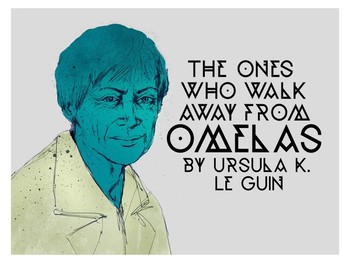
However, in my opinion, the author does this to ensure a smoother flow of the story, and when overlooking the entire story, its tone is generally neutral.

The author ends off the story with certain citizens choosing to leave Omelas, which may make it seem like it is ending with the supposed moral of the story. The beauty of LeGuin’s story is that while it reads like a ‘message’ story, there is no intended stance that the author supports. Some, unable to bear such ways of living, choose to leave. Upon realizing this, some feel horrible, but choose to stay. The child has to suffer for the rest of the city to continue being happy. Perhaps it was born defective, or perhaps it has become imbecile through fear, malnutrition and neglect.” That is the social contract in Omelas. In the basement under one of the beautiful buildings in Omelas, there is a child, described as “feebleminded. However, she soon reveals a secret trait of Omelas. It is a literal utopia, filled with whatever one needs and wants. In fact, LeGuin invites readers to imagine whatever details suit them, insisting that ‘it doesn’t matter. Everybody there is evidently living their best lives. In the story, LeGuin describes a festival celebration of the summer solstice in an idyllic and magical utopia. LeGuin, she discusses utilitarianism via a fictional narration of a paradise. In the short story, The Ones Who Walk Away from the Omelas by Ursula K. Simply put, it supports anything for the greater good. However, this problem is only an overly simplified version of utilitarianism, which is often defined as an ethical theory that determines right from wrong by focusing on outcomes. Should you flip the switch? Surely, everybody has heard of this before, more famously known as the Trolley problem.

If you flip the switch, one person will die.

You are in control of the switch that can switch the train onto another track where there is only one worker. Suppose that there is a train heading towards a group of five workers on the tracks.


 0 kommentar(er)
0 kommentar(er)
